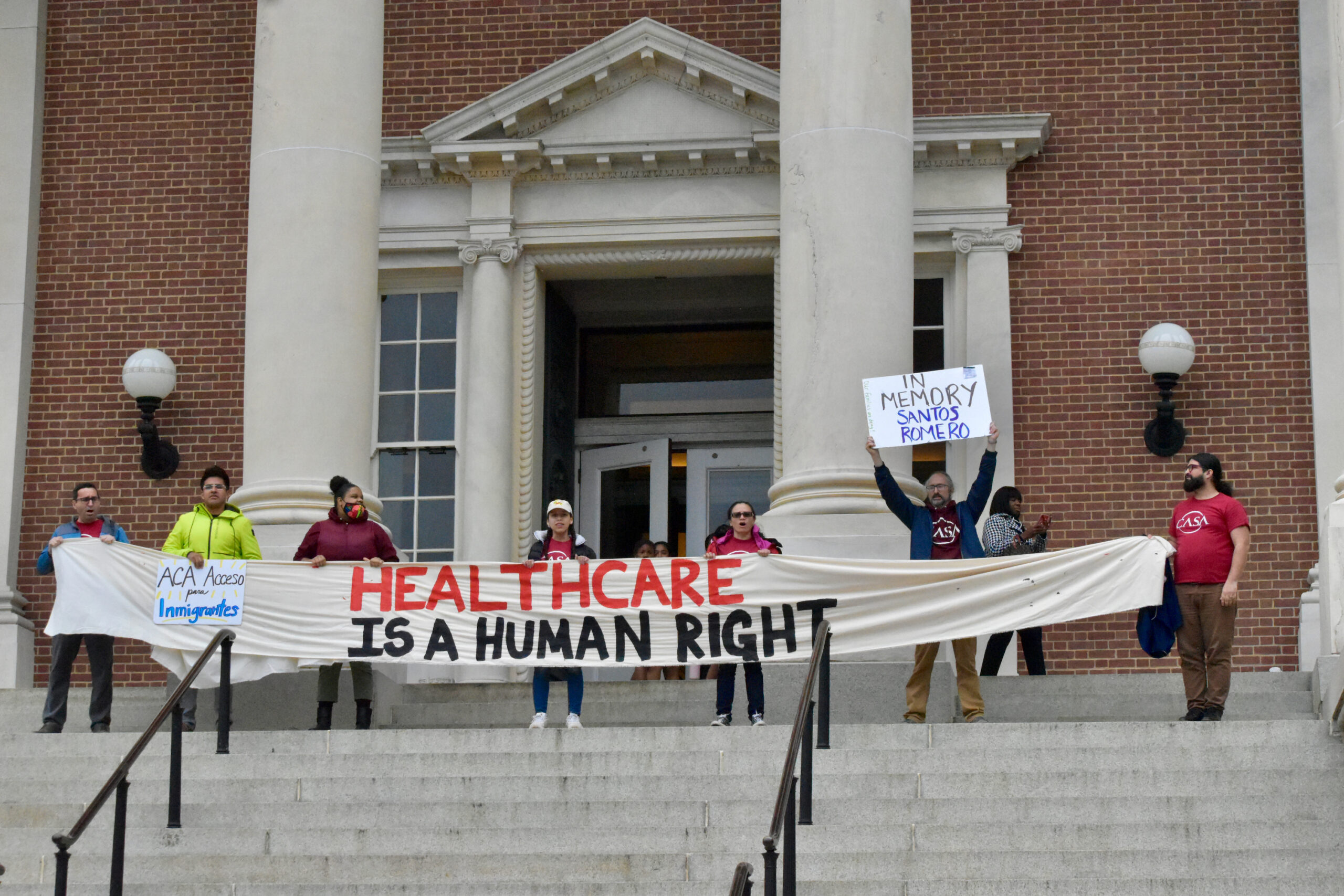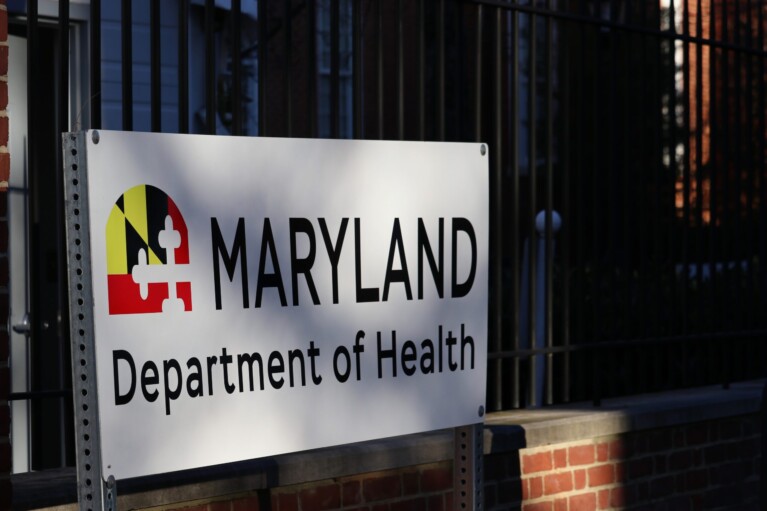Lawmakers renew effort to extend access to health care for undocumented Marylanders

Thousands of undocumented immigrants live in Maryland and many of them do not have health insurance that covers regular health check ups and other needs. Some members of the House of Delegates are renewing an effort to allow Maryland’s undocumented population to buy private health insurance through the state’s insurance market place.
The legislation, which does not have a bill number yet, is referred to as the Access to Care Act and is similar to a bill from the 2023 session that passed in the House of Delegates but stalled in the Senate.
It would prompt the Maryland Health Benefit Exchange, the state’s insurance marketplace created as a result of the national the Affordable Care Act, to file a federal waiver to permit undocumented Marylanders to buy and use individual health care plans.
Currently, federal laws say that undocumented residents are “not eligible to enroll in federally funded coverage… or to purchase coverage through the ACA (Affordable Care Act) Marketplaces,” according to KFF, a nonprofit health policy research and polling organization.
“The way that the Affordable Care Act works as written, is that unless you are here legally or you’re authorized with proper documentation, you are not allowed to purchase health care coverage through the Exchange. And that’s just part of the underlying law,” Michele Eberle, executive director for the exchange, explained.
“We can ask for that rule to be waived so that we can allow anyone, any Maryland resident, whether they have documentation or not, to purchase their health care through the exchange,” she said. The waiver has been approved in other states.
She said that there are about “300,000 Marylanders who don’t have health coverage…about a third of those don’t fall into the category of having proper documentation.”
Del. Bonnie Cullison (D-Montgomery) said that she filed the legislation for the Access to Care Act Friday, and it should receive a bill number Monday. Sen. Antonio Hayes (D-Baltimore City) will be handling the bill on the Senate side, she said.
“It really is beneficial, not only to the families to have health care insurance, but to the state to have as many people as possible,” she said.
“You put more healthy people into the [insurance] pool, it stabilizes insurance rates,” Cullison explained. “We have the worst emergency room wait times in the country, and a lot of that is because people don’t have preventive and primary care, so they end up in emergency rooms, whether they are undocumented or not…If they don’t have health care, that’s uncompensated care.”
Cullison said that in her talks with insurance companies, it’s apparent that expanding health care options to undocumented immigrants is good for business.
“There’s a benefit to them. When I’ve talked with insurance carriers, what they’re telling me is, the more people we can insure, the better for us. It’s better for their companies,” she said.
Del. Ashanti Martinez (D-Prince George’s), previously a research and policy analyst with the regional immigrants’ rights group CASA, said that lacking health care is one of the top concerns for Maryland’s undocumented population. He plans to co-sponsor the bill.
“This is not free health care. This is not a handout,” Martinez said. “This is an opportunity for folks that work hard, who pay taxes, who live here in Maryland, who impact our communities. These are people who go to church with us, their kids go to our schools…We want them to be as healthy as we are,” he said.
Last year, activists from CASA staged acts of civil disobedience around the legislative complex in the final days of the legislative session in an unsuccessful effort to pressure the Senate to pass the measure.
Affordability could still be an issue
If the Access to Care Act were to become law, and undocumented immigrants in Maryland were legally able to purchase health care on the Maryland Health Benefit Exchange, many may still struggle to afford the plans currently offered on the marketplace.
“I am very, very supportive of opening up the exchange to all Marylanders,” Senate President Bill Ferguson (D-Baltimore City) said during a news conference at the start of session. “The real question, though, is affordability. And this is where the rubber hits the road.”
Earlier this month, the Maryland Department of Health briefed the House Health and Government Operations committee on how much it might cost Maryland taxpayers to provide health care coverage to the state’s undocumented populations.
According to health department analysts, it could require millions or even a billion dollars in state funding through subsidies that would ease the financial burden of health care for undocumented residents, a population that is often low-income.
California, Colorado and other states provide state-funded health care programs to some low-income residents regardless of documentation status.
In Maryland’s constrained fiscal year, lawmakers are saying it’s unlikely that state funds will towards creating those subsidies in the 2025 budget.
“We don’t have the state dollars right now,” Cullison said.
The Access to Care Act will have a provision that authorizes future legislatures to create those subsidies down the line if they are interested in doing so, Cullison said.
“This is a challenging budget year. And we can’t make any promises about funding going forward. We don’t want to increase our structural deficit,” she said. “So, we can’t consider that right now.”
Ferguson said that the 2024 fiscal year was about “normalizing” the state budget now that additional federal funds from the COVID pandemic are less available.
“In a world of inexhaustible resources, it would be an easy answer, but we have a lot of competing pressures,” he said. “So if we’re just focused on the exchange, I think that’s a little bit of an easier conversation. I just don’t know if that solves the problem of expanding the number of insured Marylanders.”




 Creative Commons Attribution
Creative Commons Attribution